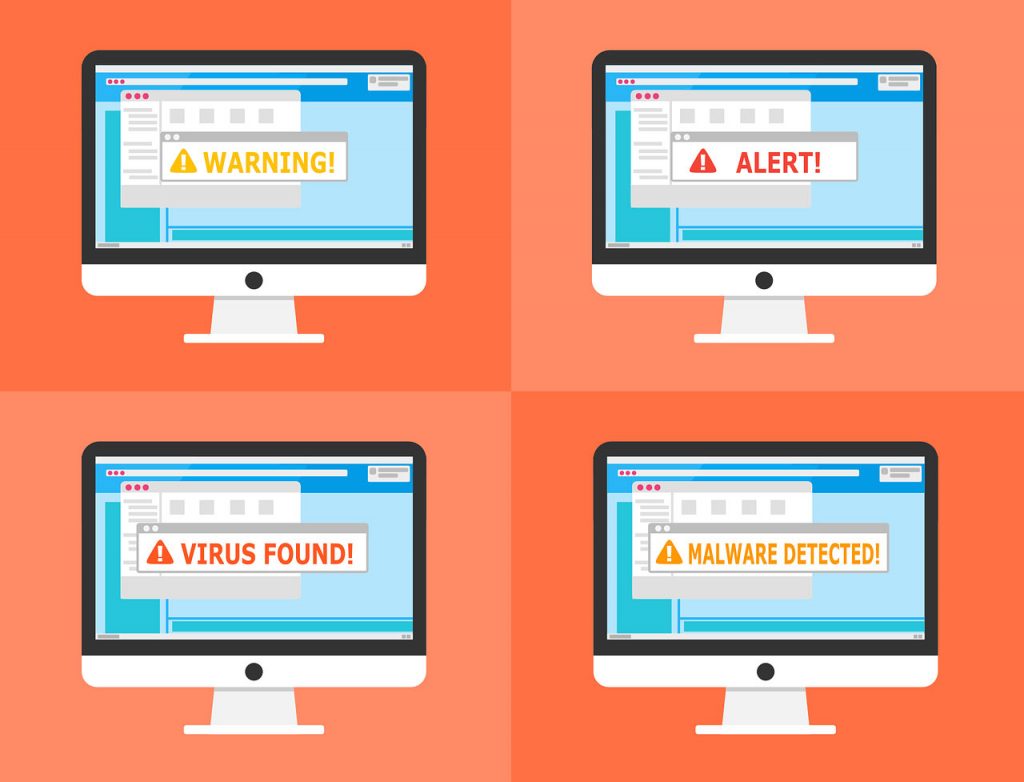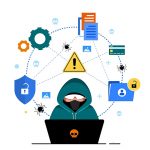
It seems like everything is connected to everything these days, doesn’t it? The software your business relies on certainly is I whether you installed that software locally or use it in the cloud.
The process that creates and delivers your software needs to be protected, and supply chain issues are now at the forefront of good cybersecurity. From the tools developers use to the way updates reach your computer, every step matters. A breach or vulnerability in any part of this chain can have severe consequences.
Just remember the global IT outage that occurred just a few months ago on July 18. This outage brought airlines, banks, and many other businesses to a standstill. The culprit turned out to be nothing more than an update from software supplier called CrowdStrike gone wrong. It turns out that the company was a link in a LOT of software supply chains, so when it went down, the others fell like dominoes. Ironically, this outage also affected Domino’s Pizza.
How can you avoid a similar supply chain-related issue when you’re dependent on third-party software? Let’s talk about why securing your software supply chain is absolutely essential.
1) Interdependence and Complexity are Increasing
Many Moving Parts
The software we use today relies on various components, including open-source libraries, third-party APIs, and cloud services. Each different component introduces its own potential vulnerabilities. If you don’t ensure the security of each part, you’ve ensured nothing. Protecting all is essential to maintaining system integrity.
Ongoing Integration and Deployment
It is now a now common practice to continuously integrate and deploy (CI/CD). These practices involve frequent updates and integrations of software. While this speeds up development, it also increases the risk of introducing vulnerabilities. Securing the CI/CD pipeline is crucial to prevent the introduction of malicious code.
2) The Increase of Cyber Threats
More Targeted Attacks
Just as a general will disrupt the enemy’s supply chain to weaken them on the battlefield, cybercriminals are increasingly attacking the entire software supply chain to get to their intended target. Attackers infiltrate trusted software to gain access to wider networks. This method is often more effective than direct attacks on well-defended systems.
Growing Sophistication of Strategies and Tactics
To successfully exploit supply chain vulnerabilities, attackers use increasingly sophisticated techniques, including advanced malware, zero-day exploits, and social engineering. The complexity of these attacks makes them difficult to detect and mitigate. A robust security posture is necessary for a solid defense.
Reputational and Financial Damage
Any attack that proves successful can result in significant financial and reputational damage. Companies may face regulatory fines, legal costs, and loss of customer trust. Recovering from a breach can be a lengthy and expensive process. And you don’t want to find out what happens when your customers lose trust in you. Proactively securing the supply chain helps avoid these costly consequences.
- Compliances and Regulations
Compliance
Every business operates under compliance standards, and certain industries have more. Strict compliance standards for software security include regulations like GDPR, HIPAA, and the Cybersecurity Maturity Model Certification (CMMC). Non-compliance can result in severe penalties. Ensuring supply chain security helps meet these regulatory requirements.
Exercise Vendor Risk Management
Your vendors are your supply chain, and regulations often require robust vendor risk management. Companies must ensure that their suppliers adhere to security best practices. This includes assessing and monitoring vendor security measures. A secure supply chain involves verifying that all partners meet compliance standards.
Continuous Data Protection
Data protection and privacy are often at the heart of regulations. Securing the supply chain helps protect sensitive data from unauthorized access. This is especially important for industries like finance and healthcare. In these industries, data breaches can have serious consequences.
4) Ensure Business Continuity
Prevent Disruptions
There may be a few ways you can face disruptions to your business operations, but securing your supply chain can prevent disruptions from that quarter. Cyber-attacks can lead to downtime, impacting productivity and revenue. Ensuring the integrity of the supply chain minimizes the risk of operational disruptions.
Maintain Trust
A breach can erode trust and damage business relationships. Customers and partners expect secure and reliable software. By securing the supply chain, companies can maintain the trust of their stakeholders.
How to protect the supply chain?
Strong Authentication
Just as you should in all digital areas in which you operate, strong authentication methods are crucial for all components of the supply chain, including multi-factor authentication (MFA) and secure access controls. Ensure that only authorized personnel can access critical systems and data.
Continuously Update
This is just sound cybersecurity advice for every aspect of your business. By keeping all software components patched and updated, you don’t allow vulnerabilities to develop. It’s wise that you don’t do all systems at once. Apply patches and updates to a few systems first. If those systems aren’t negatively affected, then roll out the update more widely.
Regular Security Audits
Conduct regular security audits of the supply chain, which involves assessing the security measures of all vendors and partners. Identify and address any weaknesses or gaps in security practices. Audits help ensure ongoing compliance with security standards.
Adopt Secure Development Practices
Secure development practices reduce vulnerabilities, so if these practices are not in place, establish them ASAP. This includes code reviews, static analysis, and penetration testing. Ensure that security is integrated into the development lifecycle from the start.
Threat Monitoring
Threat monitoring needs to be continuous to spot risks and anomalies. Use tools like intrusion detection systems (IDS) and security information and event management (SIEM) systems. Monitoring helps detect and respond to potential threats in real-time.
Ongoing Security Awareness Training
Include your supply chain in your ongoing Security Awareness Training. This includes developers, IT personnel, and management. Awareness and training help ensure that everyone understands their role in maintaining security.
Frequently Asked Questions
What is the difference between CI and CD?
They can be looked at as parts of the same process: CI (Continuous Integration) can be considered as the first stage in producing and delivering code, and CD (Continuous Delivery) as the second. CI focuses on preparing code for release (build/test), whereas CD involves the actual release of code (release/deploy).
What is interdependence in a system?
Complex systems depend on other systems to be able to operate. Highly interdependent systems are called ‘tightly coupled’ systems. The more tightly coupled these systems are, the more they will be affected by failures on the systems they depend on.
How do you explain MFA?
Simply put, MFA (Multi-Factor Authentication) is a multi-step account login process that requires users to enter more information than just a password. For example, along with the password, users might be asked to enter a code sent to their email, answer a secret question, or scan a fingerprint or retina.
How often should you do security awareness training?
Forget the old model of once a year – employees don’t retain that long, and threats change frequently. You should have Security Awareness Training for your employees at least 2 to 3 times a tear, although 4 times a year (quarterly) would be much better. Your business depends on it.
How secure is your network?
As a reputable member of the IT Support Los Angeles community since 2002, IT Support LA offers a FREE, no-risk network and security assessment. It is a non-intrusive scan that allows us to deliver a comprehensive report that is yours to keep. No strings, and no obligation to ever use our Managed IT Services.
The best defenses are expert cybersecurity to protect your data from theft, and a top-notch Managed Services Provider (MSP) to ensure continued reliability and defenses against newly emerging threats.
With our 100% Money Back Guarantee in writing, we offer a risk-free way for prospective clients to try us out. Because we do not require a ‘hard’ contract, our clients can fire us at any time with 30 days’ notice. We have to be good.
Among the Managed IT services we provide:
IT HelpDesk Service
Onsite IT Support
Cybersecurity
Cloud migration and management
Email migration services
Backup and disaster recovery
VoIP phone systems
IT disposition and recycling
Office moves
White label services (IT to IT)
IT Support LA is an award-winning Managed Services Provider (MSP):
o 3 Years awarded Best IT by the Small Business Expo
o Awarded 2nd best company of any type in the US by the Small Business Expo SB100
o Awarded Best IT Support in California by Channel Futures
o Winner of Best IT in Los Angeles by Channel Futures
o Listed as one of the world’s Top 501 Managed Services Providers by CRN and in the top 250 in the ‘Pioneer’ listing
o 4 years listed as one of the Top 501 Managed Services Providers in the World by Channel Futures
o Listed as #21 Managed Services Providers in the World in Channel Futures NextGen 101
o Globee 2021 Bronze Award winner for Chief Technology Officer of the Year
o Globee 2022 Gold Award winner for Chief Technology Officer of the Year
o Named one of 2022’s 50 ‘Best’ businesses in California by UpCity
o Named Best of IT winner by UpCity
o Winner of Local Excellence Award for 2021, 2022 and 2023 by UpCity
o Named Best of Cloud Consulting winner by UpCity
o Certified as Top Managed Services Providers and Cybersecurity Pro by UpCity
o Named Best IT in Los Angeles by Expertise.com.
Want Help Managing IT Vendors in Your Supply Chain?
Securing your software supply chain is no longer optional. A breach or outage can have severe financial and operational consequences. Investing in supply chain security is crucial for the resilience of any business.
Need some help managing technology vendors or securing your digital supply chain? Reach out today and to schedule a chat and take advantage of our FREE no-risk network and cybersecurity assessment.
818-805-0909


